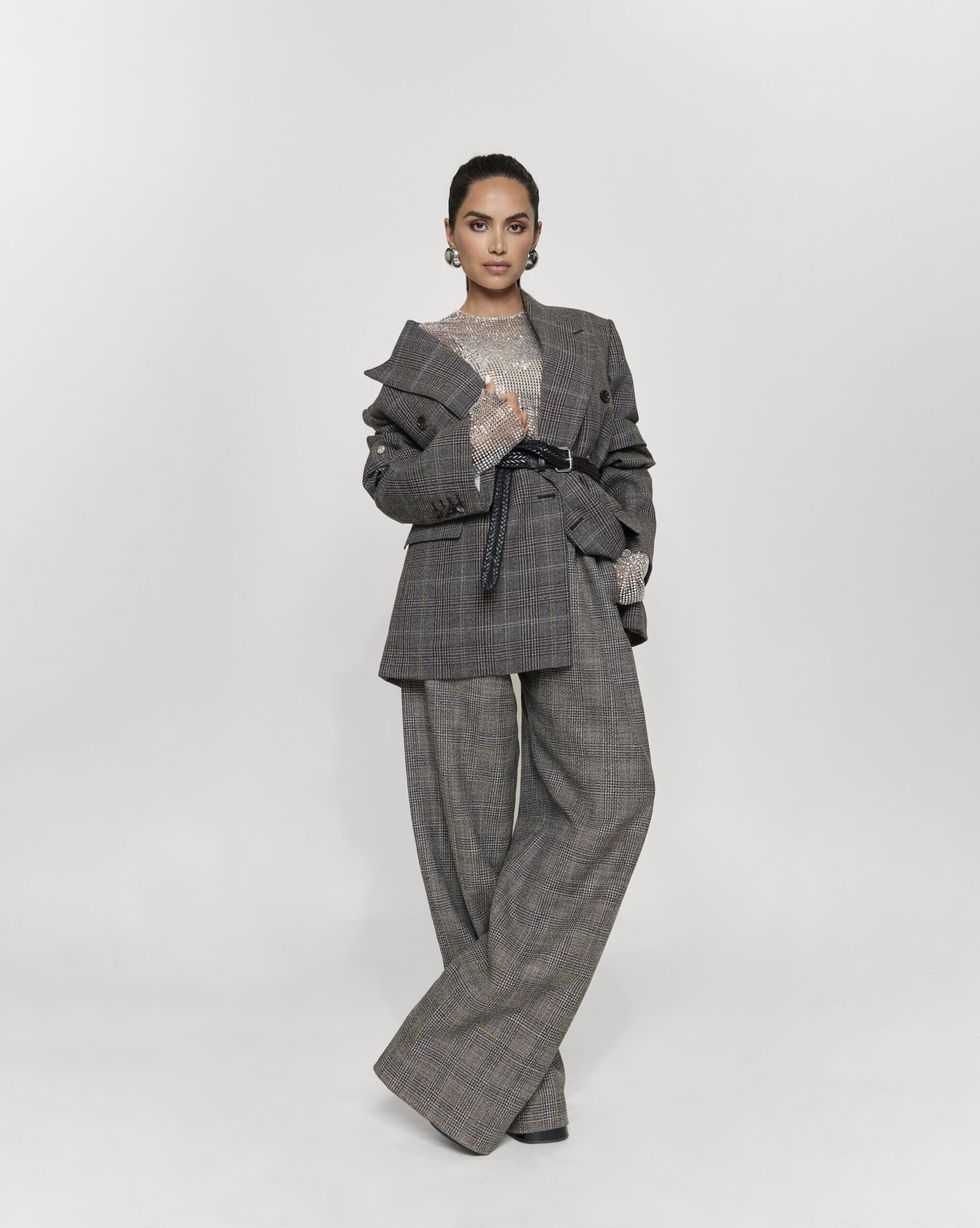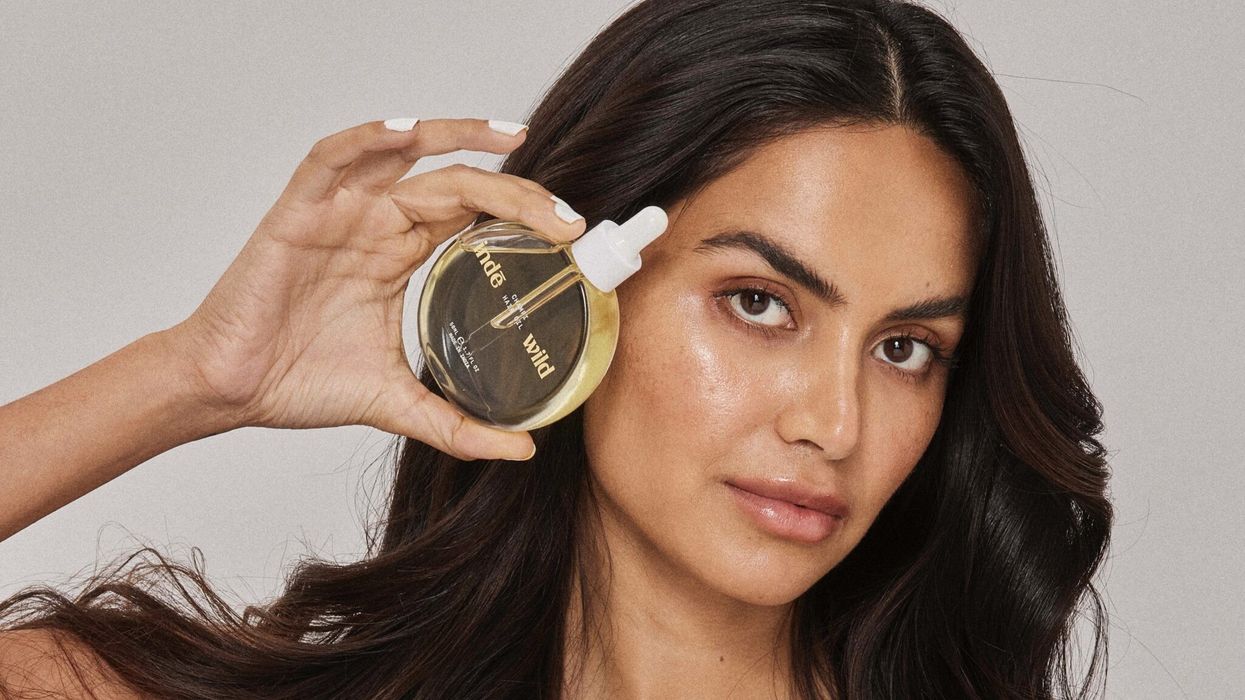THE rapid rise of social media influencers has led to a transformative effect on popular culture, and one who puts real meaning behind their work is Diipa Büller-Khosla.
The leading lifestyle influencer, model, activist and entrepreneur – with a bachelor’s degree in international human rights law – has parlayed her experiences of growing up in India, UK and Holland to create an inspiring online presence.
Her work has ranged from woman-empowering activism to creating content, being a fashion influencer and founding popular Ayurveda based beauty brand, Inde Wild. These add to achievements that include, being the first Indian female influencer to speak at The World Economic Forum, delivering keynote speeches at Harvard University and being the face of big beauty brands.
The 32-year-old balances her work with motherhood and family life. Eastern Eye caught up with the champion of south Asian culture – with millions of social media followers – to find out more, including the secret of being popular online, top skincare tips, girl power and her all-time favourite fashion trends.
How do you reflect on your journey so far?
Looking back at it all, I am just immensely grateful to my team who uplifted me and for the fans who believed in the product and overall brand. It truly took an army of people to create my individual brand’s success, and for that, I am forever grateful for each and every one of my people.
Did you imagine becoming so influential and popular?
Never. I always loved speaking, advocating my opinion, pushing different perspectives, but never once thought people would love to hear it as much as they do.
I am so honoured that there is actual trust and power behind my voice, because for someone with such a bold personality, you get fearful that people would rather shut you out than give you a platform to shine.
How important has it been to champion your south Asian heritage and culture globally?
Extremely important. Definitely one of my top priorities when pushing my brand identity and personal influencer persona.
I think there’s very few south Asian role models in this industry.
So, I take it on myself to act strong enough to support a majority that often comes off as a minority in the world of social media and beauty standards.

What inspired you to start your Inde Wild brand?
I was always surrounded by ancient Ayurvedic remedies from a young age. Subconsciously, it became a part of my everyday life - especially because my mom was an Ayurvedic doctor and dermatologist.
Science and tradition co-existed as part of my daily life, with self-care and healing in the Khosla family.
I realised there is power in these superfood Ayurvedic ingredients, which has not been tapped into - twist chemistry into it and I knew the result was a brilliant idea.
Tell us more about Inde Wild.
Everything you need to know is in the name itself - Inde is our fresh twist on India, paying homage to the history and home of Ayurveda, while also believing in modern science. And wild is not only representative of our ingredients, but of your (and our) release from societal norms.
Inde Wild is a movement where we can truly celebrate our differences and beauty we each bring to the world.
What’s yout top skincare tip? Drop the 100 steps and move towards your favourite three.
I feel the skin care industry tends to overcomplicate the secret to clear skin - you need this and that.
But in reality, you really just need consistency, the right organic products, and the repetition of using these products in a consistent manner.
Which fashion trends do you love?
I will say this again and keep on saying it - clean girl aesthetic is and will always be my favourite fashion trend. I love the idea of fashion moving towards elegance and simplicity, where you are the accessory. Where your clothes do not wear you, but you wear it. It’s empowering and simple.
How important is girl power to you?
Girl power is extremely important to me. More than it resembling tapping into your inner female power, it resembles using that power to uplift and support the females around you to do the same.
We often think of girl power as a singular concept, but the most empowering thing a girl can do is share her power with those around her to help the female community grow in confidence.
What is the secret of being a successful social media influencer?
Being authentic and not being afraid to get vulnerable. People don’t follow you to be sold perfection. They follow you because they want to relate, use your platform as a safe space to replicate, experiment, and seek advice when they need.
I realise my best posts are ones where I open up and humanise myself from being a social media influencer to simply a normal working mom.
How do you juggle your various roles?
Through prioritisation and realising you cannot have it all. So, sometimes it’s okay to push one of your tasks for another day or ask for some help.
Being a super multi-tasker doesn’t mean you have to be a superwoman.
Use the resources and support group around you to get what you need to get done.
What's your plan going forward?
Grow, grow and grow. Test and launch more innovative products. Just expand my brand so I can continue to have an even more impactful and powerful reach.
What inspires you?
My customers, community and team are my muses of inspiration. The core of my brand is and will always be our community. So much so that Inde Wild's entire product development strategy begins with the Inde Wild woman (you!).




